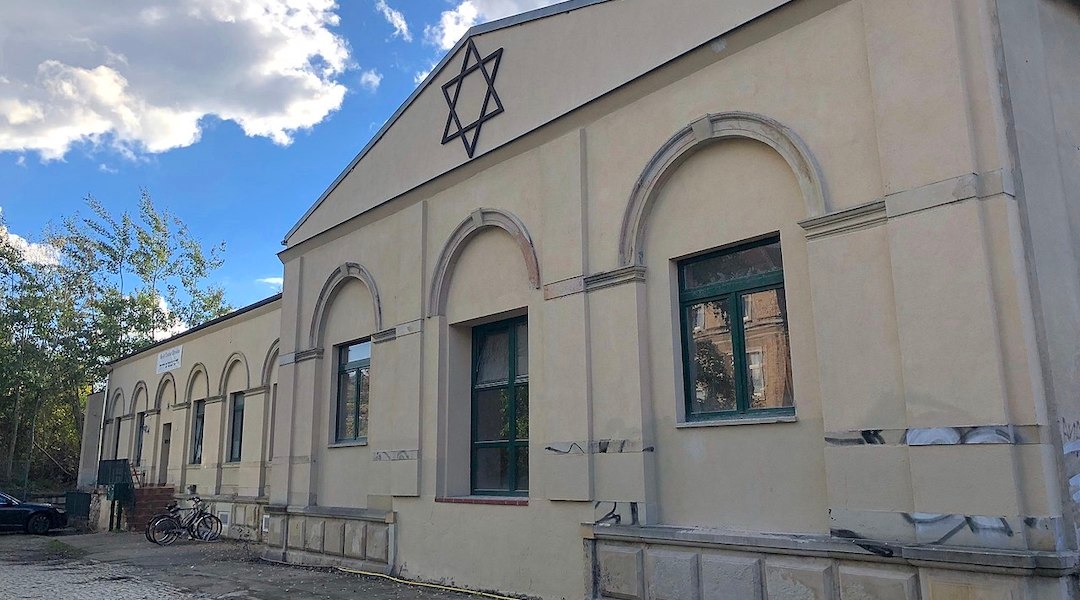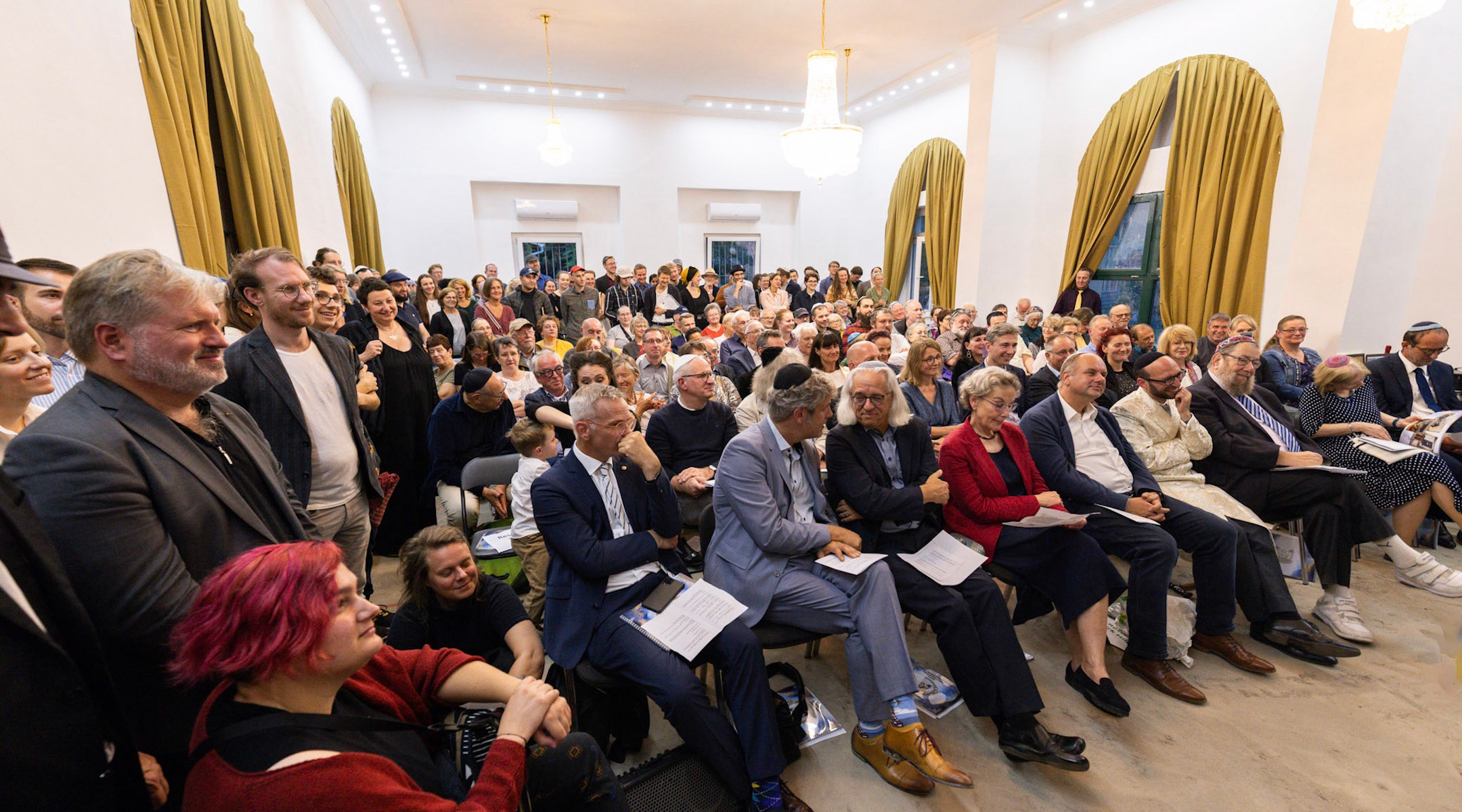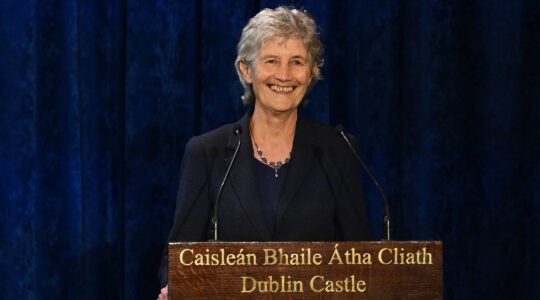(JTA) — A new synagogue billing itself as a neo-Hasidic congregation has opened in the former East German city of Dresden, without the backing of Germany’s main Jewish communal umbrella organization.
The Jewish Community Dresden, or JKD, was founded two years ago by Akiva Weingarten, who received his first ordination in the Satmar Hasidic sect in upstate New York but broke away from his roots and ended up studying at Germany’s liberal rabbinical seminary, the Abraham Geiger College in Potsdam.
Weingarten’s Synagogue Neustadt is housed in a refurbished, mid-19th century train station main hall. According to Weingarten, the egalitarian congregation has some 200 members, with just enough seating if all showed up at once, and is officially open to Jews and their non-Jewish partners – something that sets it apart from most synagogues in Germany.
The JKD is also not operating under the umbrella of the Central Council of Jews in Germany, and that is by design, Weingarten said.
“We don’t need anyone’s authorization to be Jewish or to have our own community, and we don’t accept the Central Council as any authority about how Jewish life should look,” he told the Jewish Telegraphic Agency.

The Synagogue Neustadt is housed in a former train station hall. (Richard.print/Wikimedia Commons)
The Central Council was founded in 1950 as an administrative body to hold together the small Jewish population in post-war Germany. Today, it coordinates 105 communities with about 93,000 members, many of them Jews with roots in the former Soviet Union. An estimated 100,000 more people identify as Jews in Germany but either don’t want to join or don’t meet the Jewish legal (halachic) requirements: having a Jewish mother or having undergone a traditional conversion.
Virtually all German synagogues are under the Council’s umbrella — including another in Dresden, the so-called “New Synagogue,” dedicated in 2001 on the site of the city’s destroyed “Old Synagogue.” But a handful of congregations in Germany are independent, rejecting or not meeting some of the conditions for membership and thus not receiving federal funding channeled through the Central Council.
“Some real change is desperately needed to have Jewish life in Germany in the coming years,” said Weingarten.
Weingarten, whose independent synagogue is supported by private donations, membership fees and funds from the city. The building that houses it also classrooms, a kitchen, offices and the dorms of a yeshiva he started. He calls Besht Yeshiva Dresden the “first liberal-Hasidic yeshiva in the world.”
Dresden Mayor Dirk Hilbert and other local and state officials attended the synagogue’s official dedication on Sept. 3.
JTA has documented Jewish history in real-time for over a century. Keep our journalism strong by joining us in supporting independent, award-winning reporting.






